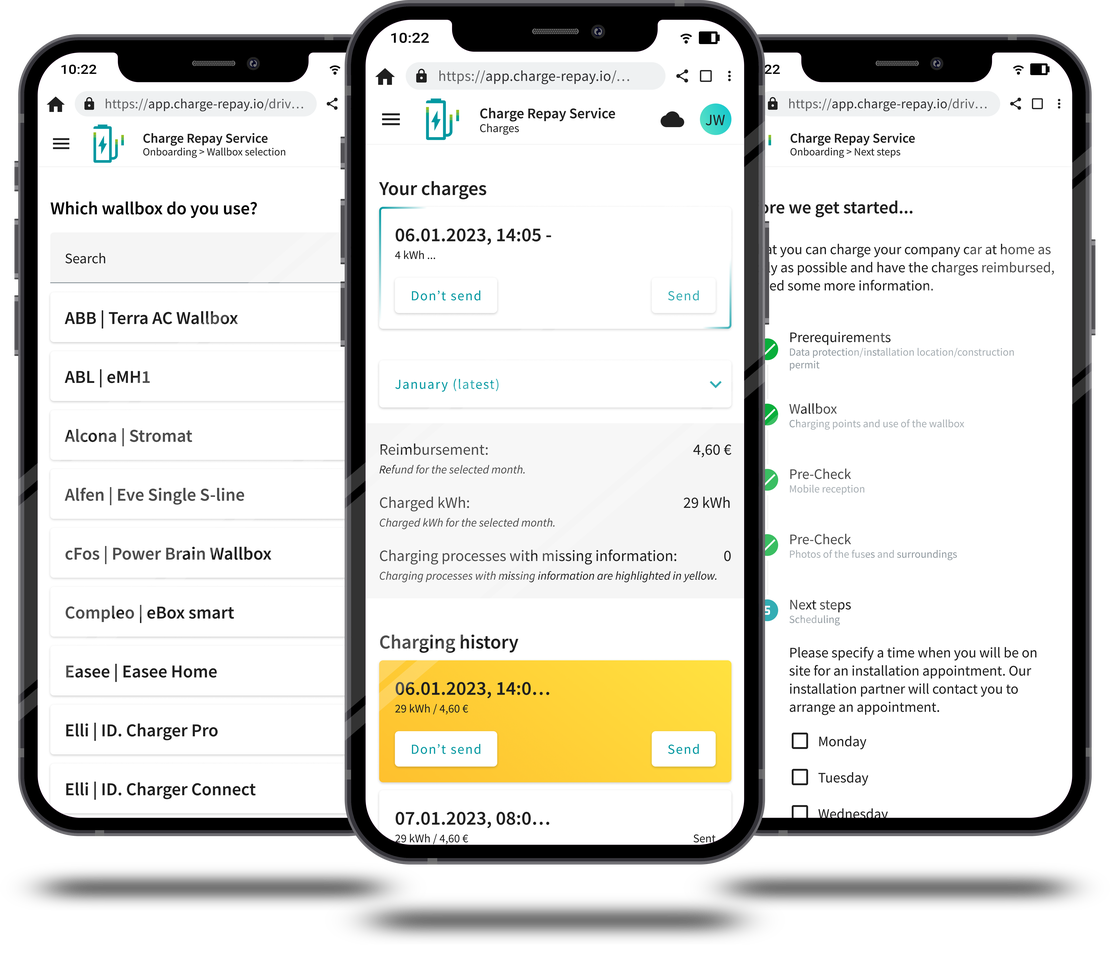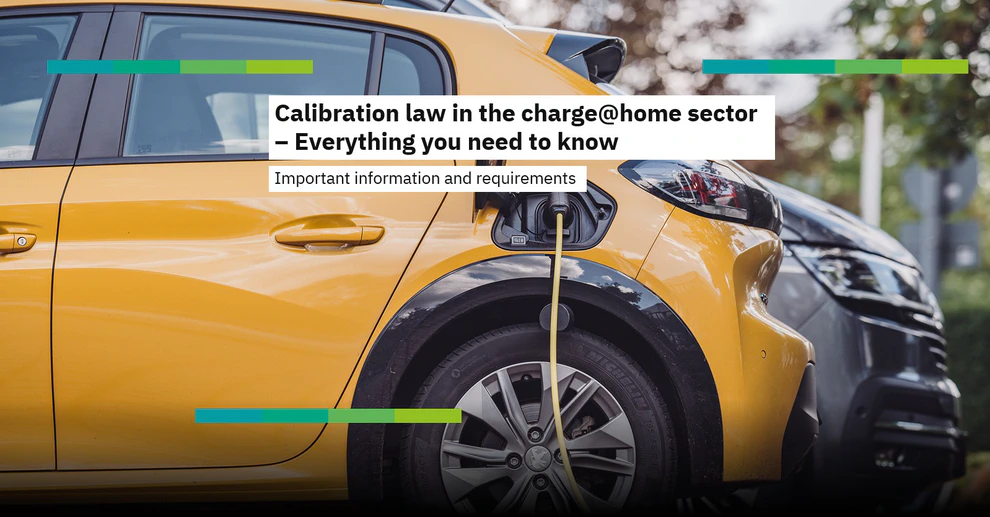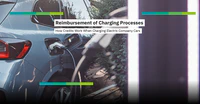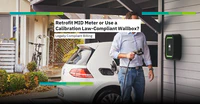The calibration law reliably accompanies us on the path to electrification. It ensures that the measurement accuracy of charging stations is guaranteed and that consumers are billed fairly and transparently. In addition to billing in public and semi-public areas, it also ensures the measurement accuracy of charging stations in the private sector. In this article, you will learn everything important about the legal requirements for home charging stations and how to ensure calibration-compliant billing.
Calibration law in the charge@home sector: Important information and requirements
Legal requirements for home charging stations
In Germany, the state calibration offices are responsible for monitoring the calibration-compliant use of measuring devices. In certain areas, these calibration offices work together in the Working Group on Measurement and Calibration (AGME ) and issue jointly developed rules. These rules state, among other things, that business-used measurement values based on the transmitted electrical energy must be determined with a calibration-compliant measuring device. Charging stations that are used exclusively privately and do not allow billing of charging processes are generally not subject to calibration regulations.
The Rules Determination Committee has established the measuring device type No. 6.8 “Measuring Devices and Additional Equipment in the Field of E-Mobility” for the above-mentioned calibration-compliant measuring devices in accordance with §46 of the Measurement and Calibration Act. This category includes so-called calibration-compliant wallboxes, although this term is not legally protected. Due to the limited number of users and the specific application area, there are special regulations for the home sector that allow calibration-compliant billing with lower requirements.
Download our charge@home Guide now!
Our guide highlights the requirements for a home charging solution and explains what is needed to use it for legally compliant billing of company cars. Learn more about the installation of wallboxes, legal frameworks, and efficient billing solutions for home charging.
REQUEST GUIDE
Special regulations for billing in the home sector
Under certain conditions, the use of a measuring device according to No. 6.8 is not required. If the home charging station is used exclusively for charging an electric vehicle of a contractual partner, an exception applies: A MID-compliant active energy meter can be used as long as it only measures the energy transferred to charge the vehicle. If these conditions are met, simple wallbox models with an integrated MID meter can also be used for calibration-compliant billing. However, the restriction to a single contractual partner is viewed critically with the increasing spread of electromobility. As soon as another vehicle, such as a second car or a neighbor’s car, is charged at the wallbox, the conditions for calibration-compliant billing via a MID-compliant meter are no longer met. In this case, according to case law, a calibration-compliant wallbox according to measuring device type No. 6.8 would be required. The responsibility for legal compliance lies with the charging point operator, i.e., the private person or company car driver.
Calibration-compliant billing with any wallbox | Charge Repay Service
A significant hurdle for the spread of calibration-compliant wallboxes is the high cost. While simple wallbox models are already available for a few hundred euros, calibration-compliant variants remain expensive. Many users have also used the KfW funding programs to purchase wallboxes, but at that time there were only a few calibration-compliant models on the market.
A solution is offered by the Charge Repay Service, which enables calibration-compliant retrofitting. By integrating a separate MID meter, existing wallboxes can be upgraded for calibration-compliant billing for multiple users. This conserves both resources and the wallet.

Replacing existing wallboxes to meet legal requirements is costly and unsustainable. The Charge Repay Service from Phoenix Contact enables calibration-compliant connection to a comprehensive billing system for any wallbox. A patented process with a standard MID meter enables calibration-compliant billing for multiple user groups or contractual partners.
Conclusion
The calibration law ensures that the billing of charging processes is fair and transparent. With the right measures, home charging stations can also be operated in compliance with the calibration law. Compliance with legal requirements is not only legally mandated but also builds trust among users.
Make your wallbox fit for the future
Learn more about our Charge Repay Service and benefit from calibration-compliant billing. Feel free to schedule a free expert consultation with us.




